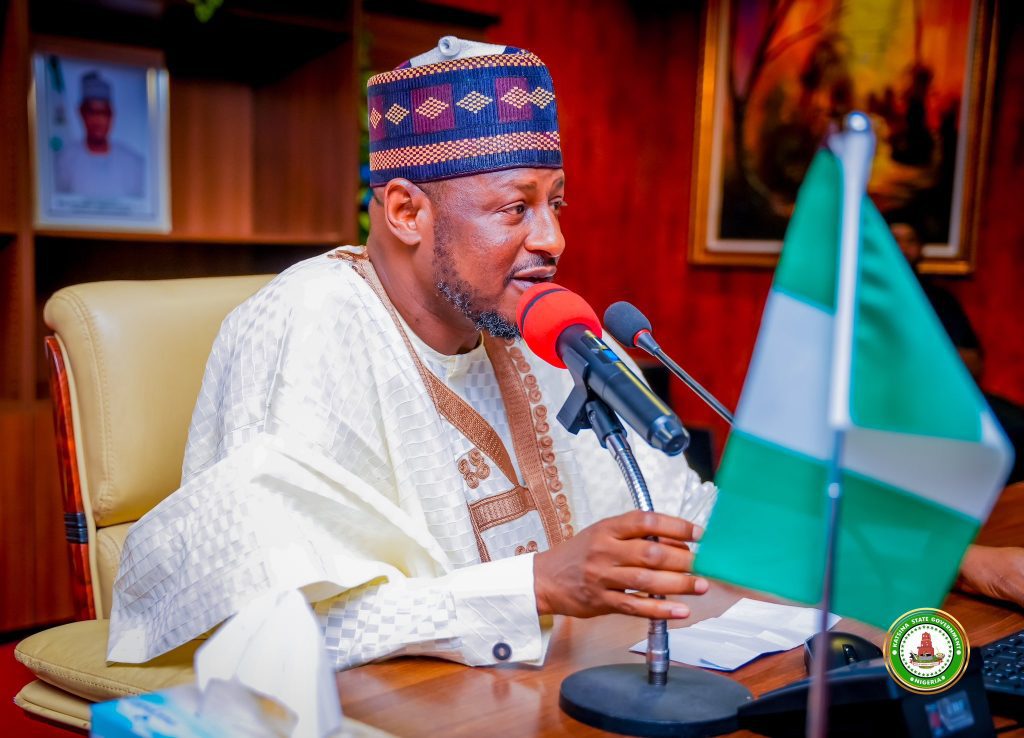The Katsina State Governor, Dikko Radda, believes that states should be given the power to set their own minimum wage, with guidance from the Federal Government, because each state faces different challenges and generates different revenues.
Governor Dikko expressed this opinion during an appearance on Channels Television’s Politics Today, on Friday evening.
The PUNCH reported that the Nigerian Labour Congress and the Trade Union Congress proposed a N615,000 minimum wage to the committee set up by the FG.
During the Workers’ Day celebration, the government did not announce an increase in the minimum wage, but instead announced a 25 and 35 per cent wage increase for workers, which the NLC President, Joe Ajaero criticized as “mischievous.”
However, Dikko said that states should be allowed to determine their own standards for increasing the minimum wage, according to their financial capabilities.
“So, I think on the issue of the minimum wage, we agree that the Federal government can have a minimum standard of the minimum wage, but sub-nationals should be allowed to come up with a reasonable standard within which their economy can be able to afford.
“That is my view and that is the view of some of our colleagues. Yes, we have agreed that there should be a minimum wage, but there should be a minimum standard within which the sub-nationals can address it”, he said.
When asked if Katsina state would choose to pay N70,000 as minimum wage, like Edo state, the governor said, “I don’t know how much money Edo state has, so the governor there can decide how much they can afford”.
He mentioned that some states still struggle to pay the N30,000 minimum wage and that the state would need to consider its revenue and the strength of its civil service to determine the amount it can afford to pay its workers.
“I can't tell you the exact amount I will agree to pay my civil servants right now. As a government, we need to discuss this in our executive council, look at our revenue, look at our expenses, and consider the strength of our civil servants before making a decision.
“You would remember that even the N30,000 minimum wage that was agreed upon over the years, there are some states that up till now, have not implemented the N30,000 minimum wage. So, we have to be very careful and look at it holistically so that we can address the issue appropriately,” he added.



